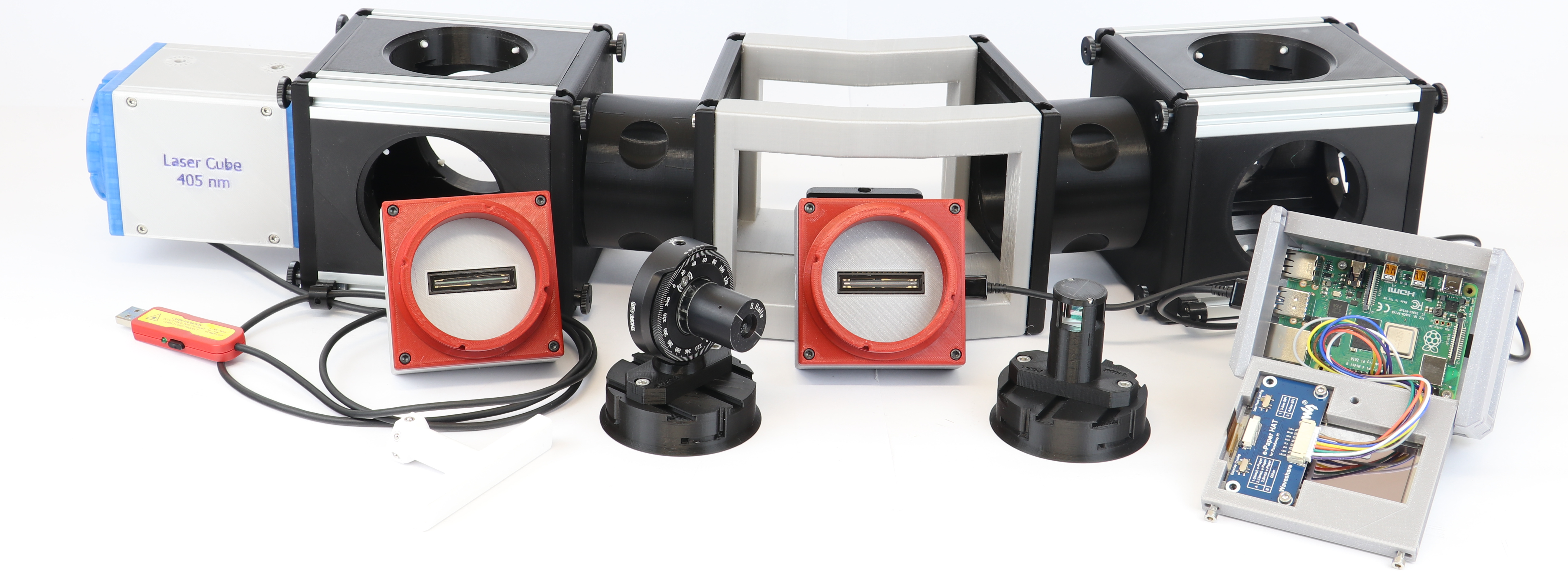Main content
Top content

Opto-Cubes
Probing the corrosion resistance of load-bearing bridge elements, locating cracks in pipelines and aircraft turbines, or testing the properties of adhesives and paints in automotive components: High-precision testing equipment is required in almost all areas of modern industry. However, high acquisition costs and case-dependent requirements often lead to highly specialized test equipment and a certain gap in the transfer between research and application. Hence, complex and costly procedures are usually reserved for large companies. To overcome this man-made barrier, the project pursues the development of an open-source, modular framework, with which high-precision testing devices for regular and challenging test processes can be built with a focus on small to medium-sized enterprises, the general start-up scene or even the creative community. The research idea is centered around the combination of agile prototyping with modular, open-source software and hardware units that can be self-assembled, easily fit together and put into operation without any expertise. The project is intended to open up the rapid, customized and error-free application of optics-based sensor concepts to the public.
Developing a modular and open-source framework for building high-tech test equipment requires research into mechanical, optomechanical, electronical and programming solutions. Above all, it is necessary to achieve a high degree of flexibility, adaptability and functionality in the assembly of different high-tech test procedures. Such an agility is achieved through a modular concept consisting of interconnectable module components in an open-source software and hardware environment that users can manufacture themselves using additive manufacturing. The modelized units are tested from the outset for selected use cases with potential users in each application to find out which properties are required for the highest possible agility. The project team covers all the skills required for this task from the fields of optics, metrology, and detector technology. In addition, the project builds on the mix of expert know-how and experience gained from feedback of potential users from outside the field. Important elements of the project are the exemplary application, for example, in the inspection of pipelines and the testing of light metal surfaces. Findings from early user workshops are fed back into the research work on modularized units and the modular framework.
The result is a framework that is available to a wide range of users without restrictions:
- as free of charge as open-source hardware and software with instructions for the assembly and functionality of the modular building components,
- as a pre-assembled set of module units,
- as detector and camera units that can be integrated into existing, proprietary sensor devices.
For more information visit our website http://opto-cubes.de or photonikforschung.de.
Repository can be found on osnaData.
Publications:

